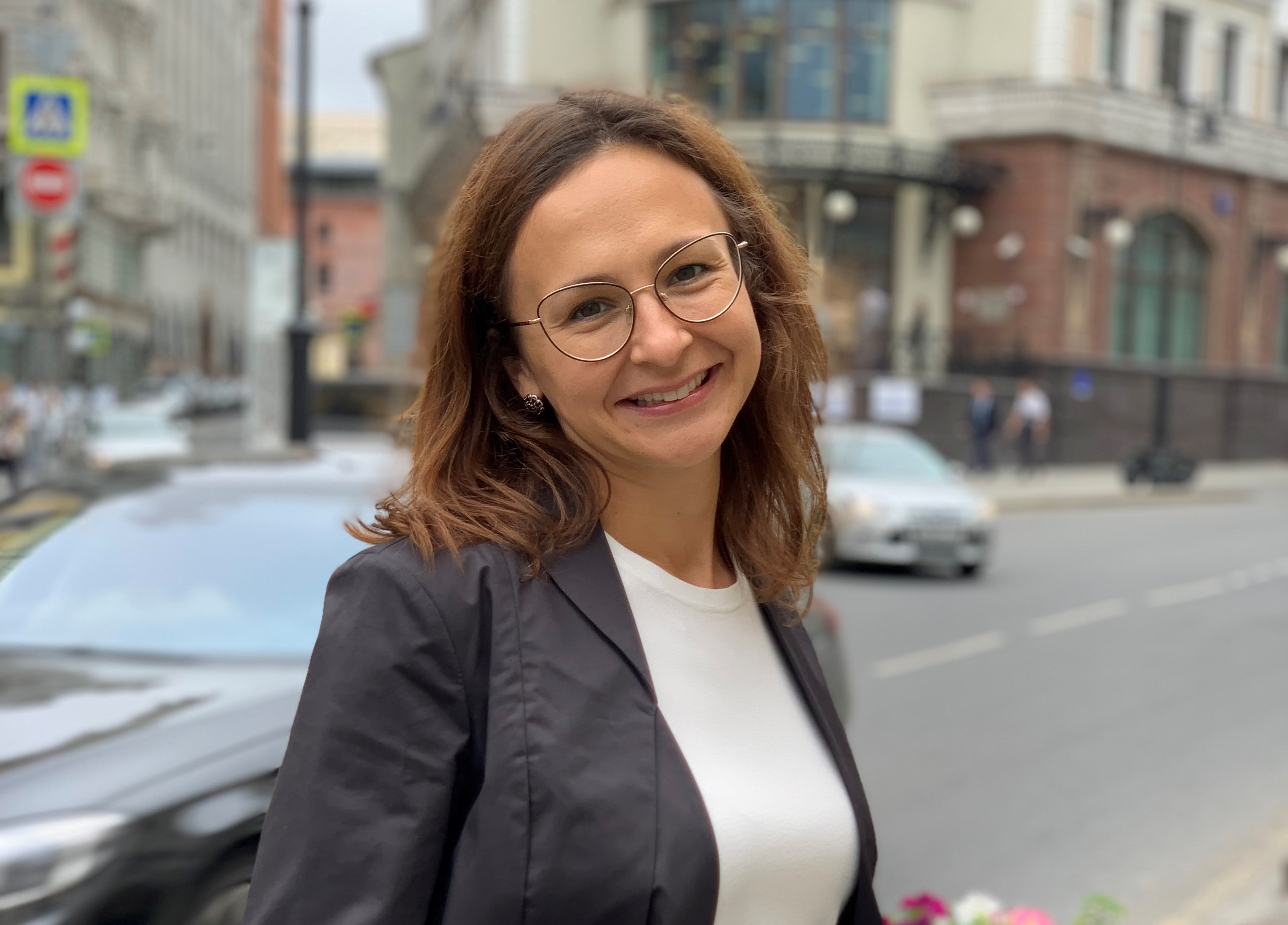International Regional Studies: Russia’s Big Hunt for Global Markets

The Second International Conference ‘East and West in the New Transformation Phase: Asia Encountering the Challenges Of Deglobalization’ will be held from December 16-17, 2020. According to Vera Vishnyakova, Head of the Faculty of World Economy and International Affairs School of International Regional Studies, it will be the first event to discuss the most pressing questions in contemporary international regional studies.
When its aims and tasks are clearly formulated in line with today’s challenges, the field of international regional studies can be an important tool in implementing Russia’s plans to enter global markets with its products and services. The field is aimed at promoting Russia’s national interests globally, reinforcing Russia’s position on international markets, and getting political support in potential partner countries, as well as attracting foreign investment and innovation technology for the development of Russian industries.

As an area of higher education, international regional studies aims to prepare professionals in regional studies with special competencies in political, economic, and cultural marketing. Such specialists are essential for Russia’s participation in the tough competition for countries as market outlets, where regional studies professionals from the US and EU traditionally promote their respective countries’ policies.
In applied research, international regional studies must focus on studying the potential capabilities of global markets, countries, and regions of the world, so that qualified regional specialists can develop analytical recommendations for governments and big businesses regarding prospective industry niches for the Russian economy and Russian policy.
The demand for professionals in regional studies has evolved in Russia in many areas: education, research, public administration, international trade, and international investment
However, universities’ ambiguous understanding of employers’ demands, together with an inability to clearly define the professional skills and career prospects students of international regional studies gain, hamper its popularity among prospective students. The traits that differentiate professionals in regional studies from those in international studies, politics, and Asian studies, are blurred.
This problem is worsened by the fact that different universities offer different sets of courses in ‘International Regional Studies’ and prepare graduates who are in fact specialists in philology, culture, and even international relations, but do not have the relevant competencies in foreign trade, market competition, and promoting their country’s interests. This undermines the idea of the profession and does not increase interest in it among both university applicants and employers.
If the field’s specific topics of inquiry and programme aims and tasks are clearly defined, the number of employers willing to hire such professionals, as well as the number of prospective students interested in becoming regional specialists and promoting their country’s interests will grow.
If international regional studies is understood as a field that seeks to identify economic, cultural and political potential in addition to the prospects and risks of specific countries and regions in order to promote the national political and economic interests in these regions, it will undoubtedly be both transparent and appealing to Russian employers, prospective students, as well as university teachers and students,.
Certainly, we should agree that the basics of international regional studies include knowledge in language, culture, interethnic and interreligious dialogue, geography, and socio-economic and political structures of countries and regions.
That’s why the key task for international regional studies at Russian universities should be developing methods to promote Russia as a brand. The key task in teaching should be creating methods to teach professionals relevant for today’s markets.
A professional in international regional studies should have the skills to solve practical tasks in the following fields:
Economics:
- Developing bilateral economic integration with existing partners;
- Using international aid (humanitarian and economic), as a tool to establish trust-based cooperation for further promotion of Russia’s economic interests;
- Studying the specifics of regional markets and looking for new partners; increasing Russia’s export capabilities, including non-oil and gas areas, innovation, agriculture, wood processing and other industries, particularly, deep conversion products.
Politics:
- Studying countries and regions in order to define and attract the most prospective partners for bilateral cooperation and Russia’s promotion as a global player in regional and global political tasks;
- Using the capabilities of the existing regional political associations and international organizations, such as BRICS, ASEAN, SCO, and EAEU, in order to implement Russia’s foreign policy tasks and promote the creation of new international organizations that pursue its interests.
Culture:
- Studying historical, linguistic, and cultural specifics of countries and regions, in order to establish close ties with non-governmental, public, and cultural organizations and associations, as well as business unions and associations; develop methods to expand cultural, humanitarian and educational cooperation;
- Developing the channels to attract more international students for studying in Russia, in order to increase Russia’s visibility abroad.
Professionals in regional studies, who know the relevant tools and are focused on solving specific applied tasks, will become a cornerstone in governmental international departments, big corporations, and trade representative offices, in order to promote Russia’s foreign policy and foreign trade strategies.
The School of International Regional Studies at the HSE Faculty of World Economy and International Affairs is ready to solve all these tasks. The suggested concept and the sets of competencies will be different from what is offered at other Russian universities
Highly qualified research teams taught at HSE University will have specialized knowledge in international regional studies and will be effective in executing orders by public and private organizations.
Russia has already embarked on a path to expand its influence in the global politics and promote its national interests and professional presence at international markets. Professionals in regional studies who get training with the use of new advanced methods will be effective managers and researchers for these processes and will be able to compete with their counterparts both from the West and the East.
International regional studies as a research area, in its contemporary understanding, will help Russia realize its foreign policy ambitions and become an equal partner in the big international market game.
Vera Vishnyakova
Associate Professor, School of International Regional Studies
See also:
Pivot to the East: A Comprehensive Study of the Cultural and Civilisational Centres of the Non-Western World is the Top Priority
China and the Chinese world, South Asia, Southeast Asia, the Arab countries, Iran, Turkey, Central Asia and Africa are gaining new significance in Russia’s foreign policy. However, we do not know enough about the Eastern countries. It is necessary to change the priorities in education, starting from grammar school. Prospects for the development of domestic Oriental studies in the context of the new stage in the development of the system of international relations were discussed at a round table at HSE University.
‘I Admire HSE Students’ Eagerness to Learn, to Discuss, to Broaden Their Perspectives’
Robert Romanowski was a ‘Digital Professor’ at HSE University in November 2021. In his interview for the HSE News Service, he talked about the specifics of online teaching, his course on Strategic Branding, and the skills that are essential for marketing professionals today.
Russia and Africa: Time to Expand Cooperation
There is major potential for economic and humanitarian cooperation between Russia and African countries. Particularly, Russian organisations and universities can help transfer competencies and knowledge in the fields of agriculture, energy, industrial production, environmental management, climate change, and public administration. Experts and representatives of African embassies in Russia discussed these issues at the round table ‘Russia-Africa Sharing Knowledge’ hosted by HSE University.
The Brain in Space: Investigating the Effects of Long Spaceflights on Space Travellers
As part of an international project conducted with the participation of Roscosmos and the European Space Agency, a team of researchers used differential tractography to analyse dMRI scans ofcosmonauts’ brains and found significant changes in brain connectivity, with some of the changes persisting after seven months back on Earth. The paper is published in Frontiers in Neural Circuits.
HSE University-Perm and the Training Centre of the Uzbek Ministry of Finance Sign Cooperation Agreement
HSE University in Perm has become the first academic partner of the Training Centre under the Ministry of Finance of the Republic of Uzbekistan. The parties have signed a cooperation agreement in education and research.
HSE University Strengthens Ties with Netherlands in Agricultural Research and Education
On November 9, 2021, HSE University signed a memorandum of understanding with Wageningen University & Research, a major university in the Netherlands and one of the leading agricultural research institutes in the world. Participants of the signing ceremony included HSE University Rector Nikita Anisimov, President of the Wageningen University & Research Executive Board Professor Louise Fresco, and Dutch Ambassador to Russia Gilles Beschoor Plug.
The Majority of Russians Do Not Support Microchip Implants
The majority of Russians would not agree to being fitted with microchip implants for any purposes—medical or otherwise. A joint study conducted by HSE University’s International Laboratory for Applied Network Research and Aventica found that respondents believe the risks of personal data leaks and misuse to be too high.
‘We Can Now Say That the Finance Conference Is Global’
The 10th International Moscow Finance Conference, organized by HSE ICEF, took place on October 29–30 online. Vladimir Sokolov, Head of the International Laboratory of Financial Economics, which hosted the conference, talks about the participants, the key presentation topics and how they will impact the global economy.
HSE University Scholars Study Green Transition Risks and Greenhouse Gas Emission Regulation
The UN Climate Change Conference is taking place from October 31 to November 12 in Glasgow. The conference focuses on preventive measures against the catastrophic and irreversible consequences of rising average global air temperatures. Igor Makarov, Head of the HSE Laboratory for Economics of Climate Change, will be taking part in the Glasgow conference. In the following interview, he speaks about the pressing problems Russia and the world are facing, and the research HSE scholars are doing on climate change.
Applications to Speak at eSTARS 2021 Conference Accepted Until November 15
HSE University and Coursera are bringing together the world’s leading researchers, professionals, education and technology leaders, and business community representatives for the fourth international research conference eLearning Stakeholders and Researchers Summit 2021 (eSTARS). This topic of this year’s summit, which will run from December 1–2, 2021,is ‘Digital Transformation: Global Challenges to the Education System’.


